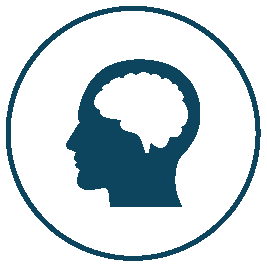Has it ever happened that, during a conversation, someone has said: “So, what do you think the answer is?”
And, mystified, you’ve responded: “But what was the question?”
I’ve come across this situation (both in mentoring and informal settings) many times. More often, the query comes in a different guise, such as “So, what do you think the solution is?” or “What do you think I should do?”
Well, the search for a ‘solution’ implies a problem. But you would be surprised at how often people who are searching for a ‘solution’ or an ‘answer’, when questioned, are surprisingly unclear as to precisely what the ‘problem’ or ‘question’ is.
Let me give an example:
David, a second-year finance student, was writing an essay on household debt and the deadline for submission was looming. He had done a fair amount of reading and much writing – in fact, a marathon of writing – and had 7,000 words. But – and here was the crunch – not only had his tutor set a 4,000-word limit, but David was struggling to a conclusion for his essay.
With submission deadline fast approaching, he approached me for advice. The first thing I asked was: “What question are you trying to answer?”
David had no idea!
But if you are required (as you are when writing an academic essay) to conclude, then establishing the question or hypothesis on which to base that conclusion is fundamental.
I often find that students have done much reading – and much writing – but that the reading and writing has been aimless, because they waded into the project in a keen but somewhat gung-ho fashion and had not, before starting, established a question around which to base their research.
A conclusion can only be drawn about a specific question or hypothesis. In the interests of researching your essay or dissertation or thesis or report efficiently, it is, obviously, best not to wait till your submission deadline is approaching – and you’ve done lots of (albeit directionless) reading and writing – before establishing that research question. Efficient research requires that boundaries be laid down early in the process, and the best way to do this is to direct your reading and your writing around the research question.

In David’s case, the topic he had been given was a very general one: “Household debt and Covid”. David agreed that, to draw any conclusions for his essay, he would have to narrow down the broad topic into a more specific question. We discussed that there were several possible angles from which to do this, including from the political, economic, and social perspectives. Since David also had an interest in sociology and society, he chose to formulate his question around whether households had resorted to increased use of credit cards during the Spring 2020 lockdown.
Having established his question, much of what David had written became irrelevant and could be peeled away. He now focused his reading around his research question. He re-organised what remained of his original material, incorporating it with the new material to lay out a coherent argument and derive logical conclusions, which he was able to do within the given word limit – and, thanks to a few all-nighters – before the submission deadline.
Although the example given here relates to an academic assignment, the principle that a conclusion cannot be drawn without first having a question on which to base it is equally significant in the relationship between solutions and problems. Since a solution is a mechanism for solving a specific issue, seeking to devise a solution for a problem without first being very clear what the problem is, is a futile mission. This is a topic I will address in a future post.
To learn more about my approach to counselling, mentoring and life-coaching, please read my terms of service.
In the meantime, if the writing up of your academic assignment has become problematic, and you would like to discuss how I could help you in establishing your research question, let me know by sending a message.



